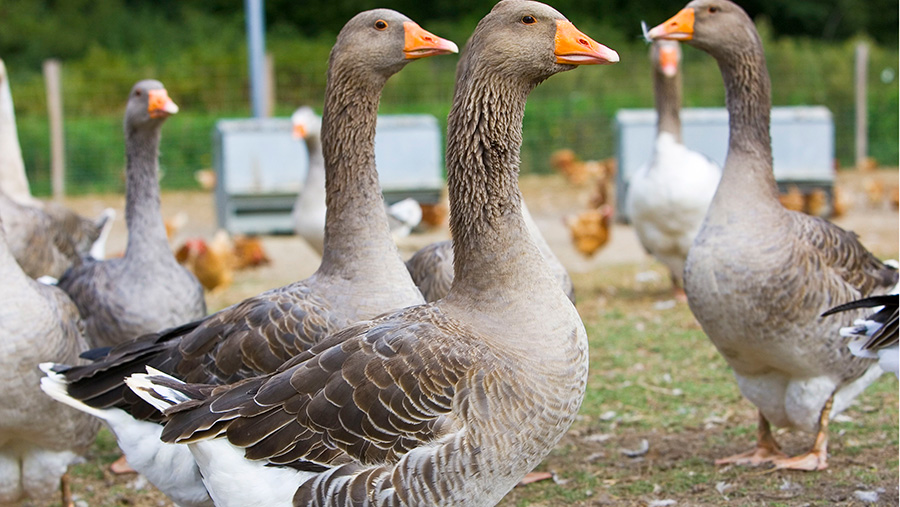French bird flu restrictions to remain in South West
 © Tim Graham/Robert Harding/REX/Shutterstock
© Tim Graham/Robert Harding/REX/Shutterstock French poultry, duck and geese producers face movement restrictions and tests for avian influenza until next March even though the wider restriction zone was lifted earlier this month.
Information from the latest outbreak assessment from the Animal and Plant Health Agency (APHA) shows since the beginning of the year, 96 serology positive (virus negative) breeding premises have been detected, of which 19 were in the free zone with birds being culled.
Seventy seven were in the restriction zone set up by the French government in the South West of the country, and these will be under restriction until March 2017 with regular tests taking place, although 15 have been pre-emptively culled.
See also: France lifts bird flu movement restrictions
The assessment adds surveillance has been carried out in wild birds in the restriction zone, and in commensal birds (mainly passerines) around the outbreak.
During the programme, which was instigated to provide additional evidence to lift the restriction zones, 600 samples were taken from 32 wild species with all proving negative when tested by polymerase chain reaction.
French scientific research concluded if a virus had spread from poultry into wild birds, the prevalence of infection would be very low; that it would be unlikely the viruses were maintained in wild birds and if wild birds had been infected they were unlikely to be a source of contamination when the farms were restocked.
APHA said it would continue to monitor the situation and reminded poultry keepers to maintain high standards of biosecurity, remain vigilant and report any suspect clinical signs promptly.
In addition, producers should use the testing to exclude scheme for notifiable avian disease where appropriate as an early safeguarding measure.
